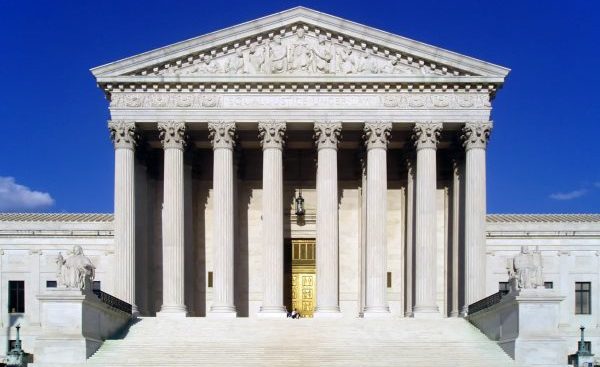
The U.S. Supreme Court convened Monday amid a swirl of controversy as the justices, with what many believe is a clear conservative majority, look at cases challenging abortion, religion and gun rights, the latter being the long-awaited case of New York State Rifle & Pistol Association v. Bruen.
As noted by the Associated Press, this is the first time in 18 months the court will be together in the courtroom, though Associate Justice Brett Kavanaugh will be out of the room after having been diagnosed with COVID-19. The AP said he will participate remotely from his home during oral arguments this week.
The looming battle over gun rights in New York is getting national attention. The case, for which oral arguments will be heard Wednesday, Nov. 3, challenges the Empire State’s mandate that applicants for concealed carry permits show “proper cause” and evidence of “good moral character,” which critics of the law have complained for years leaves the door open to arbitrary denials of permits.
As stated in an opinion piece by Jonathan Turley at Fox News, in the past decade since the Second Amendment Foundation won the landmark victory in McDonald v. City of Chicago, incorporating the Second Amendment to the states via the 14th Amendment, “Courts have rejected efforts to limit aspects of gun ownership from barring concealed weapons to restricting ammunition. Then, in Wrenn v. District of Columbia, the D.C. Circuit struck down a requirement that gun owners show ‘good reason’ for a concealed carry permit as unconstitutional. Just last month, D.C. lost another major ruling under the Second Amendment.”
New York hasn’t done any better. Two years ago, when the high court agreed to review a challenge of a New York City requirement prohibiting taking a licensed handgun outside the city, officials in the city and the state capitol at Albany scrambled to change the law in order to avoid having the high court strike it down. This raised allegations by some observers that city officials knew all along the requirement was unconstitutional, but expected to get away with it. Then came the challenge, with the likelihood the ordinance would be nullified, and New York officials did not want to change a court ruling that could be far reaching.
But that’s out the window now, and a showdown is looming.
George Washington University Law Professor Robert Cottrol told Liberty Park Press, “It would probably signal the end of unbridled discretion on the part of licensing authorities. Authorities would have to articulate clear standards concerning eligibility for a permit to carry and those standards would have to allow law-abiding citizens without disqualifying characteristics to obtain a permit to carry.”
The addition of Associate Justice Amy Coney Barrett to the bench, the Associated Press says gun control advocates are worried. The AP quoted Jonathan Lowy, vice president and chief counsel for the anti-gun Brady lobbying group, who acknowledged, “An expansive Second Amendment ruling by the Supreme Court could restrict or prohibit the sensible solutions that have been shown can end gun violence.”
It is how the gun prohibition lobby perceives “sensible solutions” that have millions of gun owners and Second Amendment activists always on defense. These solutions include such things as licensing of gun owners, gun registration, a ban on so-called “assault weapons,” lengthy waiting periods and limits on the number of firearms someone may purchase or own. Gun rights activists contend that no constitutionally enumerated right is as regulated as the right to keep and bear arms, which the Second Amendment guarantees “shall not be infringed.”
Gun owners are hoping the court, with its perceived new conservative majority, will expand the parameters of the Second Amendment, noting that the right to bear arms cannot possibly be limited to the confines of one’s home. No other fundamental right protected by the Constitution’s Bill of Rights is so limited in scope.
A ruling in the case probably will not come until the final days of the court session, in late June 2022. That is when the most controversial rulings are traditionally handed down.